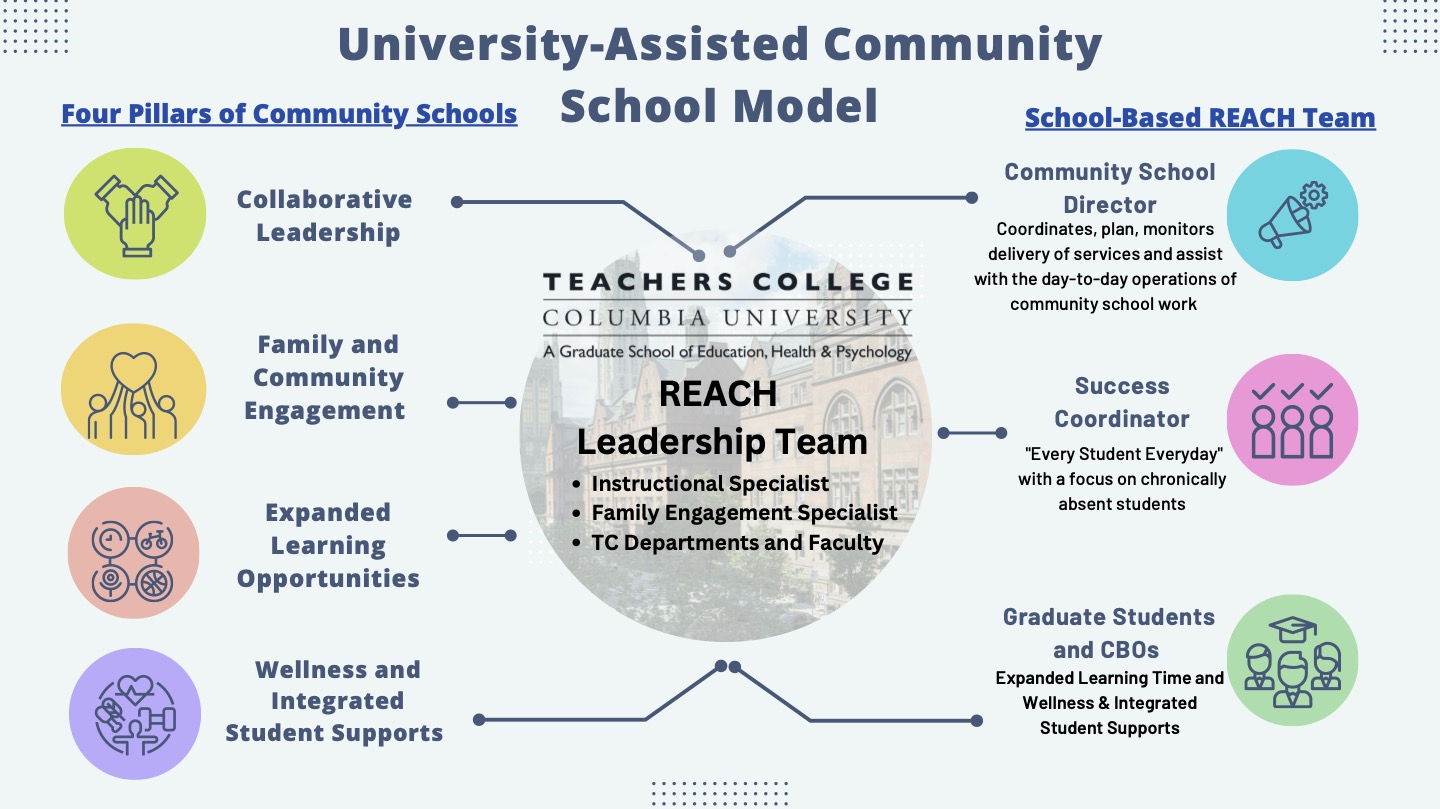Our Model
REACH implements a set of coherent and strategic actions that increases access to comprehensive educational opportunity.
TC’s unique approach to school partnership is shaped by two interrelated principles. The first is the idea of "university-assisted" schools, which refers to deep and sustained partnerships, tight cohesion of efforts by school and university personnel, and shared accountability for student academic success. The second principle is “comprehensive educational opportunity," which brings into focus the range of specific factors that have the greatest impact on student development and learning. Those factors derive from research conducted by TC faculty and reflect TC’s expertise in teaching, health, psychology, and leadership.
University Assisted Community School Model

Download/View Accessible PDF:
University-Assisted Community School Model
Key Areas
Through REACH, TC seeks to improve the educational outcomes of Harlem youth by working with principals, teachers, families, and students to design and implement coherent school improvement plans that address five key areas:
Teaching and Learning: Pedagogical Practices
Refine instructional practices within schools to improve student learning outcomes through research-based PD interventions, designed to build the instructional capacity of teachers and teacher teams in the areas of collaborative inquiry process, rigorous instructional planning and delivery, and pedagogical content knowledge.
School Readiness
Identify opportunities and support children’s access to high quality, developmentally appropriate programs that prepare children to learn on grade level.
Expanded Learning Opportunities
Engage students in high-quality learning during and outside the school day responding to specific needs as evidenced by data, expose them to new and diverse experiences, support academic, social and physical development, and align to school-day learning.
Physical and Mental Health
Identify opportunities and support students’ development of health literacy, use of positive health practices and access to and utilization of community health services so that they are better prepared to effectively participate in their learning.
Family Support and Engagement
Cultivate knowledge, skills, and confidence of families to engage with schools so that their efforts to support their children’s academic and social development are consistent, coordinated, and meaningful.